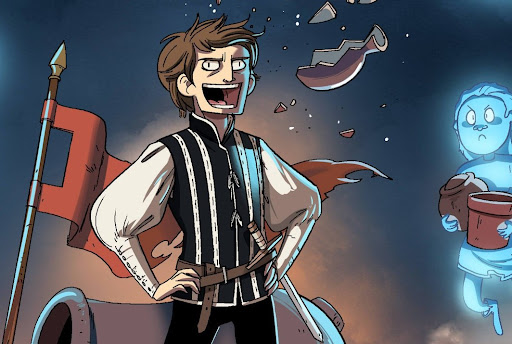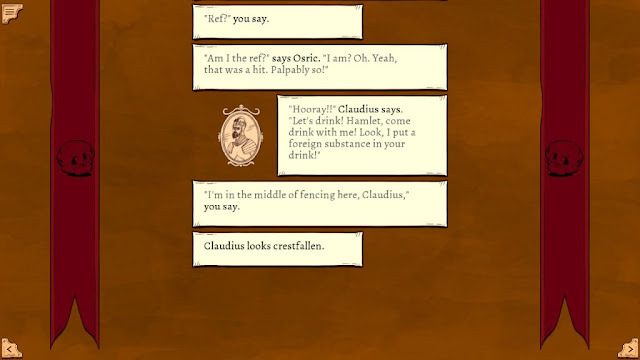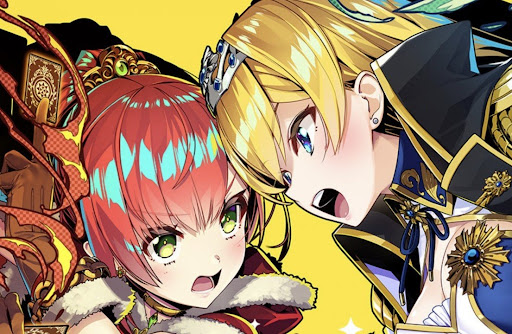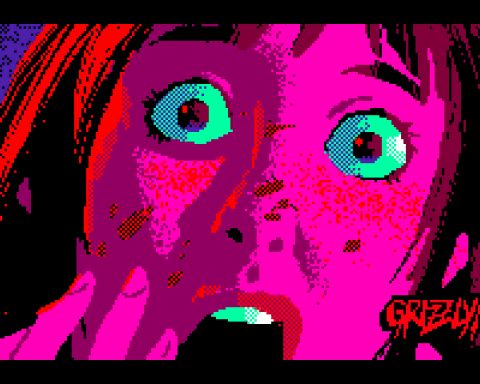There are two things that are true about Shakespeare. One, more people should read, and learn to appreciate, the great bard than do. For far too many, Shakespeare starts and stops at the more “boring” end of school curriculums, and that’s a pity because learning to enjoy Shakespeare is learning to enjoy the written and spoken word. The second thing, however, is that too many people take Shakespeare far too seriously. That, too, is the wrong approach. Shakespeare was the Disney Marvel of his time, and so his plays, as populist and as magnificent as they are, are wide open for satire and parody.
We don’t get many video games that do anything meaningful with Shakespeare, but Ryan North’s To Be Or Not To Be is an exception. First released about seven years ago now, it has finally made its way to Nintendo Switch, and, seven years after playing it for the first time, I still find it to be every bit as delightful. It is, as the name suggests, a parody of Hamlet, and what I have found consistently fascinating about it over the years is just how much it parallels another great appropriation of the material.
I am talking about Tom Stoppard’s Rosencrantz and Guildenstern are Dead. This bit of absurdist theatre from the 60’s takes two relatively minor characters from the play, and reframes events around them to both comic and thematic effect. Performed well, the play is a riot (I went and saw a production when I was studing it at school, and I’ve never laughed so hard in theatre in my life). As absurdist theatre, it’s also a work of existentialism and a musing on everything from death to the nature of free will. At one point Rosencrantz compares death to a boat journey, to which Guildenstern responds “No, no, no. Death is… not… Death is the ultimate negative. Not-being. You can’t not-be on a boat.” And so on and so forth. It’s a very intelligent play, in other words.
To Be Or Not To Be also gives you the opportunity to experience events through the eyes of a minor character. The game is played like a choose-your-own-adventure book. At various points a number of different options pop up on the screen, and depending on the option you take, the story will roll in a different direction. You can follow the broad plot of the play by selecting the option that is marked with a skull icon (you don’t technically need to have read or seen Shakespeare’s Hamlet to enjoy this… though it’s still advisable). Alternatively, you can select from a number of different routes, which will often put you in the shoes of another character entirely.
Ryan North’s work is more of a sketch comedy aesthetic than philosophical musing, but it achieves a lot of the same as what Stoppard’s work does. It effectively explores, satirises and critiques the themes of Hamlet in a way that positions them with modern thinking. So, for example, the outrageously sexist treatment of Ophelia by the play is subject to a comedic battering in this game. As one exchange between Ophelia and Laertes goes: “Laertes shouts through the door that he’s sorry and just wanted to say goodbye before he left for Frankes, but when you open the door a crack, he sticks his head in and says: ‘I’m just saying: have sex with him and you’re damaged goods.'”
The boat shows up too, with the “all aboard the party boat to England” scene still being one of my favourite comedic moments in game writing. It’s all deeply amusing, but also enlightening; seeing events in the play through a differnet set of eyes does help you develop a broader understanding of the play itself.
This is certainly a different way to look at these characters and events. It’s broadly true to form (even if it’s often saying the quiet bit out loud for comedic effect), but it’s not what Shakespeare would have written. Indeed, To Be Or Not To Be should almost be entered into the curriculum for the same reason that Rosencrantz and Guildenstern are Dead was. Experiencing other interpretations of Shakespeare’s work, and how artists can think around the base stories to structure their own ideas, is an excellent way to read and appreciate Shakespeare himself. I don’t write this to suggest that To Be Or Not To Be is some dry textbook that you inflict on students – it is witty and, rarely for comedy, entertaining on subsequent replays – but rather, we always talk about how video games are art and all the rest of it. Here’s an example of a video game that so closely parallels the work of one of the greatest “art” playwrights of the modern era. This, and not God of War or Halo or whatever, is what we actually mean when we say that video games are developing as an art form.
To Be Or Not To Be runs nicely on Switch, and is presented nicely, though I do recommend turning the voice over off and reading it in your own voice. Art is sparce through the game, but what’s there enhances the comedic quality, and music, though all royalty-free stuff grabbed off a website, is chosen nicely to support the text (with particularly highlight to the party boat scene. The music just makes that all the more amusing). It’s obviously not something that’s pushing the Switch to any extent, but I actually enjoyed playing it on the big screen TV in docked mode. There’s an elegant minimalism about the presentation that works there.
To Be Or Not To Be is an excellent – and rare – example of Shakespeare being brought to video games. It works as a satirical deconstruction of Hamlet, and it works as a simple (but enjoyable) choose-your-own-adventure gamebook in video game form. I wish more developers were willing to tackle this kind of source material.










